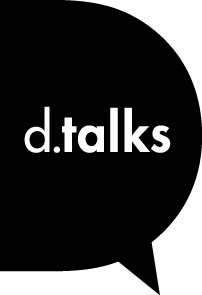What is the image of the city? Is progress defined by the shape of a collection of hi-rise buildings on the skyline? Or, is a city measured by the span of housing units? Our built environment is an expression of identity, of stories. The question becomes, whose stories? And, what histories are we unable to see?
Elder Michael Wolfleg Sr. opened the discussion with what bonds us together as humans who collectively inhabit this place, bonds that started with a treaty. Biracial Blackfoot artist Sikomh Kokomii, when reconnecting with his heritage, found an absense of Blackfoot cultural references within the modern built environment. Author Cheryl Foggo decends from the Black migration to Alberta in 1910 and has dedicated an artistic practice to researching and reveailing the untold stories of Black presence on the prairies (Refusal to be Disappeared and John Ware Reclaimed.) Doctoral student Suzanne Chew, a newcomer to Calgary, found herself compelled to understand the colonial histories of the everyday places she was starting to put roots into.
Calgary is called a “young city”, a place where buildings are quickly replaced with newer, and often taller structures. But Mohkinstis is, on the other hand, a very old place, full of stories of people living at the confluence of the Bow and Elbow River for thousands of years. What might alter in the collective memory if the architecture there, at Fort Calgary, represented Chief Crowfoot and the other signatories of Treaty 7, calling attention to the confluence as a site of exchange?
Everyday spaces are vessels of history. How might an urban designer celebrate Jimmy Smith, a Chinese immigrant who left a bequest that established Calgary’s first General Hospital? Where might we pay respect to Hop Wo, whose cafe fed Black porters in the early 1900s when eating at White establishments was not an option? Places transcend time. It’s our job as designers and planners to learn from the histories that are not apparent on the surface and create a richer context where all feel a sense of belonging.
Some Questions emerged
How do we broaden the definition of architecture to recognize markers on the land as part of the built environment?
How might our ancestors, the ghosts of whom we glimpse around the corners of bygone streets, be remembered in our everyday spaces?
How do we advance histories that are not our own? One panelist identified the challenge of the thin line between appreciation and appropriation: “It’s not a part of me, but it belongs to me.” How do we advance collectively and with respect?
How can we think about collaboration differently? How can we become more intentional about including Indigenous and marginalized voices (and designers) into a project?
Moving forward
How to identify the land markers and the community stories? A first step recommended is to reach out to elders and community organizations to learn the stories. It circles back to relationships. Building relationships before buildings, seeking underrepresented stories, revealing layers of who has come before. Placemaking isn’t just about buildings. Places are about people.
Speakers
In Order of Appearance
Elder Michael Wolfleg Sr. is a member of The Brave Dog Society Siksika Nation Treaty 7 Territory.
Sikomh Kokomii (Calling Crane) is a biracial Blackfoot (Niitsitapi) multidisciplinary artist, musician/sound artist (music teacher), Blackfoot/Treaty 7 art researcher/amateur historian, author, activist and inventor.
Cheryl Foggo is an award-winning author, playwright, and filmmaker whose work over the last 30 years has focused on the lives of Western Canadians of African descent. Her books include the recently released 30th-anniversary edition of Pourin’ Down Rain: A Black Woman Claims Her Place in the Canadian West. Her plays Heaven and John Ware Reimagined have been seen on multiple stages across Canada. Her film John Ware Reclaimed can be found at nfb.ca and her film Kicking Up a Fuss: The Charles Daniels Story can be found on youtube. She is currently working on a documentary about the Shiloh Baptist Church and Cemetery in Saskatchewan. Cheryl’s essay Refusal to be Disappeared appears in the Interrupt, Reframe issue of FOLD.
Suzanne Chew is an international doctoral student at the University of Calgary who has published poetry and stories reflecting on her research and experiences as a newcomer to Canada, navigating spaces of race during the pandemic and her responsibilities living in Treaty 7 of being in-relation with the peoples to whom these traditional territories belong. Learning from Inuit communities in western Nunavut, Suzanne researches voice and marginality, and explores how the different ways in which we speak and endeavour to be heard, both spoken and unspoken, might bring hearts and minds together for inclusive participation in environmental decision-making.
FOLD Editorial Committee Closing Remarks by: Floyd Black Horse
Recognition of support
This talk was produced in partnership with the Calgary Public Library. The talks are part of the Interrupt, Reframe issue of FOLD, published by d.talks.
Interrupt, Reframe was made possible with the support of Canada Council for the Arts, in addition to the ongoing support of Calgary Arts Development and the Alberta Foundation for the Arts.

